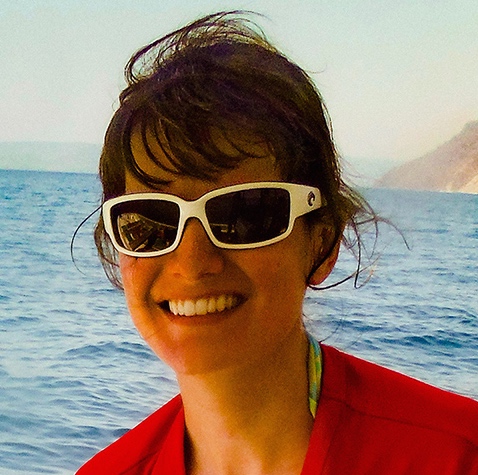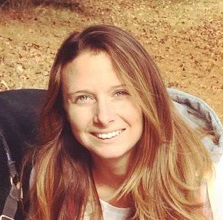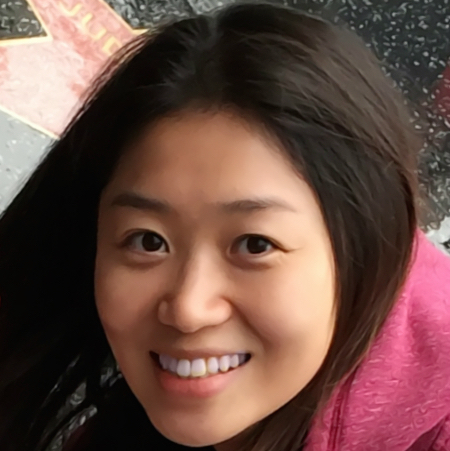Knauss legislative fellowships in Congress help build careers — and they're fun and educational. See our video and fact sheet for details.
Five Students Selected for Knauss Marine Policy Fellowships in Washington, D.C.

Five graduate students supported by Maryland Sea Grant have begun working for federal agencies in Washington, D.C. as 2017 Knauss Marine Policy Fellows — our largest class ever. They will spend one year on projects that include improving international partnerships, fisheries management, and monitoring of water pollutants.

Katie Geddes is working in the Office of International Activities of the Office of Oceanic and Atmospheric Research at the National Oceanic and Atmospheric Administration (NOAA). Geddes is helping to facilitate partnerships to advance oceanic, atmospheric, and climate research around the world.
Geddes received a master’s degree in environmental anthropology from the University of Maryland at College Park.
She grew up in Solomons, Maryland, and is passionate about helping those disproportionately affected by climate change. She found her interest in policy as an intern at the White House Council on Environmental Quality.
 Aimee Hoover is serving in the NOAA National Marine Fisheries Service’s (NMFS) Office of Science and Technology. She is part of the National Observer Program, working on the National Bycatch Report Update and hoping to improve the work environment for fisheries observers.
Aimee Hoover is serving in the NOAA National Marine Fisheries Service’s (NMFS) Office of Science and Technology. She is part of the National Observer Program, working on the National Bycatch Report Update and hoping to improve the work environment for fisheries observers.
Hoover is completing work at the University of Maryland Center for Environmental Science (UMCES) Chesapeake Biological Laboratory for a master’s degree in fisheries science from the Marine Estuarine Environmental Sciences (MEES) graduate program jointly administered by UMCES and the University of Maryland at College Park.
She is studying the movement of Costa Rican sea turtles with the goal of improving management and conservation of these endangered species.She helped develop online tools to reduce the unwanted catch of leatherback turtles in the Hawaiian longline fishery and prevent ship strikes of blue whales off the California coast.
 Rebecca Peters is the fisheries habitat and ecosystem science coordinator in NOAA’s NMFS Office of Science and Technology. Her focus includes expanding the habitat science program and learning how habitat science is incorporated into ecosystem-based fisheries management.
Rebecca Peters is the fisheries habitat and ecosystem science coordinator in NOAA’s NMFS Office of Science and Technology. Her focus includes expanding the habitat science program and learning how habitat science is incorporated into ecosystem-based fisheries management.
Peters completed her M.S. degree in the MEES graduate program at the University of Maryland Eastern Shore. Her thesis focused on delineating essential fish habitat for juvenile black sea bass in the Maryland coastal bays, where they had never been studied before.
She interned with the National Marine Fisheries Service’s Shark Population Assessment Group in Panama City, Florida.
 Stephen Gray Redding is a fisheries management specialist with NOAA’s Highly Migratory Species Division. He is collaborating with stakeholders and decision makers to ensure sustainable management of valuable and complex fish populations.
Stephen Gray Redding is a fisheries management specialist with NOAA’s Highly Migratory Species Division. He is collaborating with stakeholders and decision makers to ensure sustainable management of valuable and complex fish populations.
As an undergraduate and later a research technician at the University of North Carolina at Chapel Hill, Gray worked on projects studying the response of oyster reefs and other coastal habitats to a changing world.
As a master’s student in fisheries science at the UMCES Chesapeake Biological Laboratory, while enrolled in the UMCES-College Park MEES graduate program, Redding used chemical techniques to study the movement and migration patterns of juvenile Atlantic mackerel, work that may improve management of the species.
 Yini Shangguan is the inaugural Knauss fellow with the Nutrient Team at the Environmental Protection Agency’s Office of Water. She will work with scientists and policymakers to better understand the overall condition of estuarine, near-coastal, and coral reef environments.
Yini Shangguan is the inaugural Knauss fellow with the Nutrient Team at the Environmental Protection Agency’s Office of Water. She will work with scientists and policymakers to better understand the overall condition of estuarine, near-coastal, and coral reef environments.
Shangguan received her Ph.D. degree from the UMCES-College Park MEES graduate program while studying at the UMCES Horn Point Laboratory. For her dissertation research, she participated in a project to evaluate the impact of the Comprehensive Everglades Restoration Plan on freshwater discharge, nutrient loading, and algal blooms in Florida Bay.
Originally from China, Shangguan hopes that working at the EPA will allow her to gain practical experience in environmental management and more opportunities for communication with the public.
The Knauss Marine Policy Fellowship, begun in 1979, is designed to enable outstanding graduate students to spend a year working on science policy in Washington, D.C. The program, coordinated by the National Sea Grant Office, places fellows in federal legislative- or executive-branch offices that work on ocean, coastal, and Great Lakes policy issues. Fellowships run from February 1 to January 31 and pay a yearly stipend plus an allowance for health insurance, moving, and travel. Students can apply through the Sea Grant program in their state.
For more information
Maryland Sea Grant Program, Knauss Fellowships
National Sea Grant Program, Knauss Fellowships



